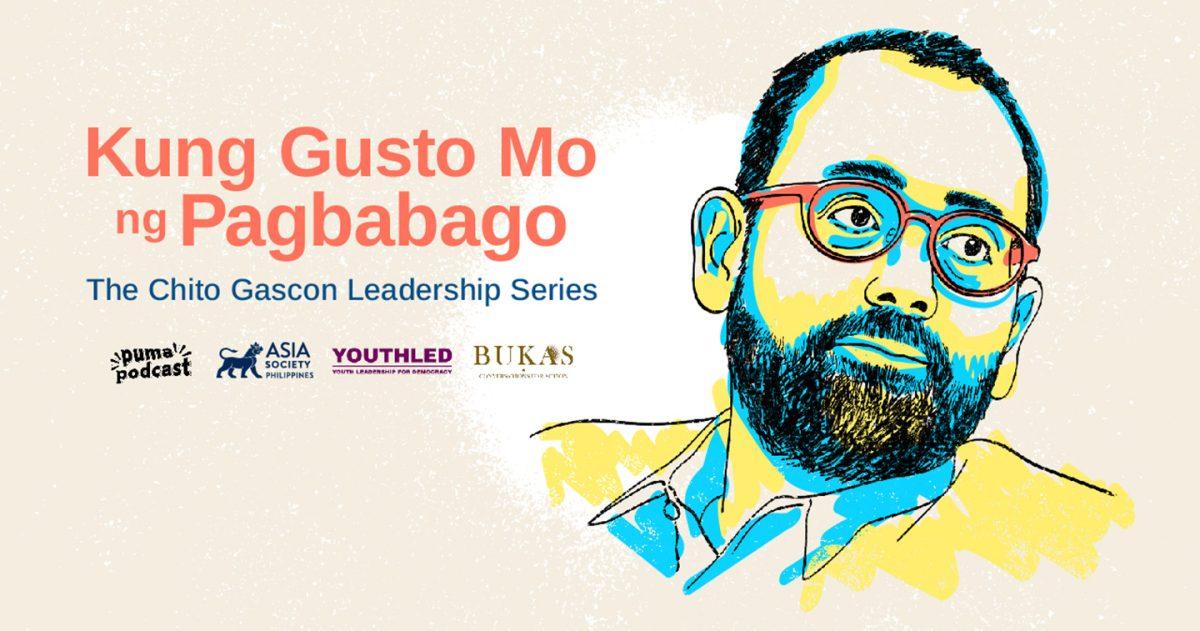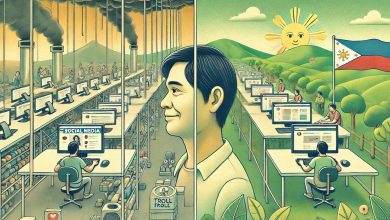MANILA, PHILIPPINES – “Every single strike, every moment, whether in times of victory or frustration, what we do every day will make the difference,” said Chito Gascon, referencing the parable of the stonecutter.
In January, Asia Society Philippines, together PumaPodcast, BUKAS, and YouthLed – a project of The Asia Foundation and the United States Agency for International Development ; launched “Kung Gusto Mo ng Pagbabago: The Chito Gascon Leadership Series” in honor of the late chairperson of the Commission on Human Rights. The series, hosted by broadcaster Roby Alampay, invites reform advocates across generations for a conversation on their experiences and challenges in pursuing change then and now. The conversations were presented on Facebook livestream and are now also a podcast.
Activism and advocacy are two sides of the same coin
From January to May, the five-part series will feature a luminary from a different field. In its pilot episode, “Kung Gusto Mo ng Pagbabago” invited Atty. Ted Te of the Free Legal Assistance Group (FLAG), for the keynote speech. He spoke on the theme of activism and advocating for change.
Te, an activist himself during Martial Law, recalled that studying the laws passed by the Marcos regime almost caused him to quit law school. But he realized that in order to change those laws, he needed to learn them. “[Before enacting meaningful change,] I would also need to change first. Change how I view the law, the role of lawyers, the roles of law and society.“
Stemming from his experience of standing up against these laws as well as studying them, he learned that activism and advocacy aren’t opposites, but partners.
“Activism, while important, has its limits,” he said. “Shouting outside the establishment can only work if people inside are willing to listen. Advocacy becomes essential when you’re already inside the room and the person who is supposed to change things is about to listen.”
‘Lakasan ng loob’
The episode’s panel of young changemakers featured human rights lawyer Atty. Ross Tugade, Usapang Econ co-founder Maien Vital, and Ken Abante of the WeSolve Foundation who spoke about how they’ve applied and adapted lessons from the older generations to make changes of their own.
Abante, who has worked with Gascon and the late Mon Jimenez in putting together the Martial Law museum, says that in communicating change, it’s important to go back to the foundations of organizing: building trust.
“Don’t talk to people to convert them to a particular candidate, talk to them because you care. Dahil tao sila, first and foremost,” he said.
Atty. Tugade acknowledges the struggle many young people have in communicating with older generations to broaden their perspectives, and advises the youth to own and see the value in what they know. “Lakasan ang loob at maniwala sa capacity niyo to trigger a conversation.”
Vital, a recent PhD graduate from Cambridge University said “Discussing with fellow students and family members the issues [that you see in society] is a start, and are small things each of us can do.” As part of her larger efforts at sparking engagement and change, she and her colleagues founded Usapang Econ to educate and inspire young people to engage in civic issues by carving out their own spaces to amplify their voices.
Their advice might seem easier said than done. Even Atty. Te admits that fighting for change can be tiring. But the panel turns to Gascon’s favorite parable: Keep pounding the rock, knowing one day, it will break.
Episode 2, “Speaking Truth to Power” goes live on Asia Society Philippines’ Facebook page on Feb.24, 2022 at 6pm, featuring Sheila Coronel, Atom Araullo, and more. To hear highlights from each episode, follow “Kung Gusto Mo ng Pagbabago: The Chito Gascon Leadership Series” wherever you listen to podcasts










